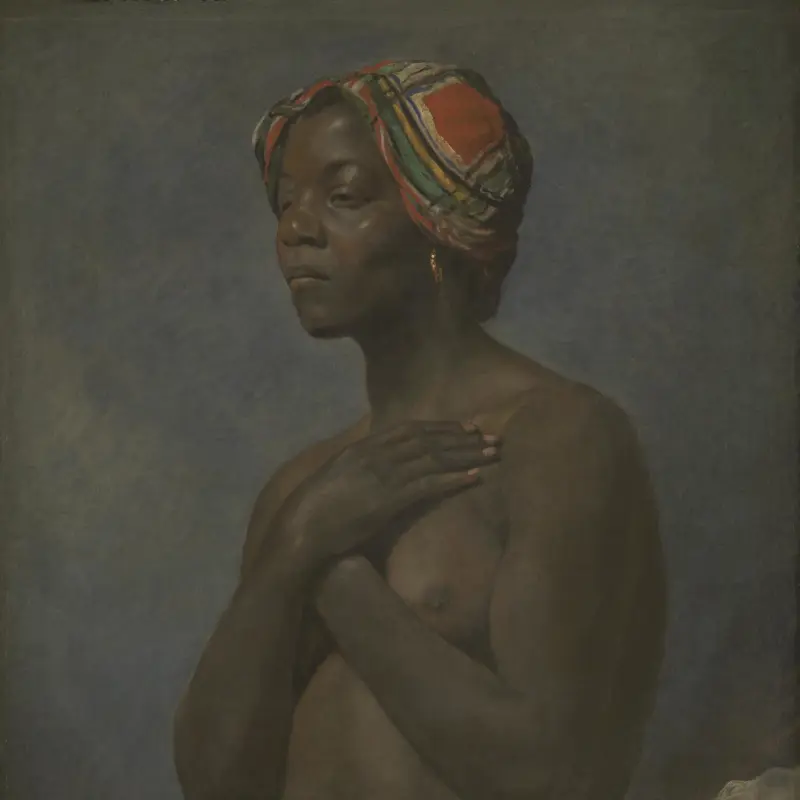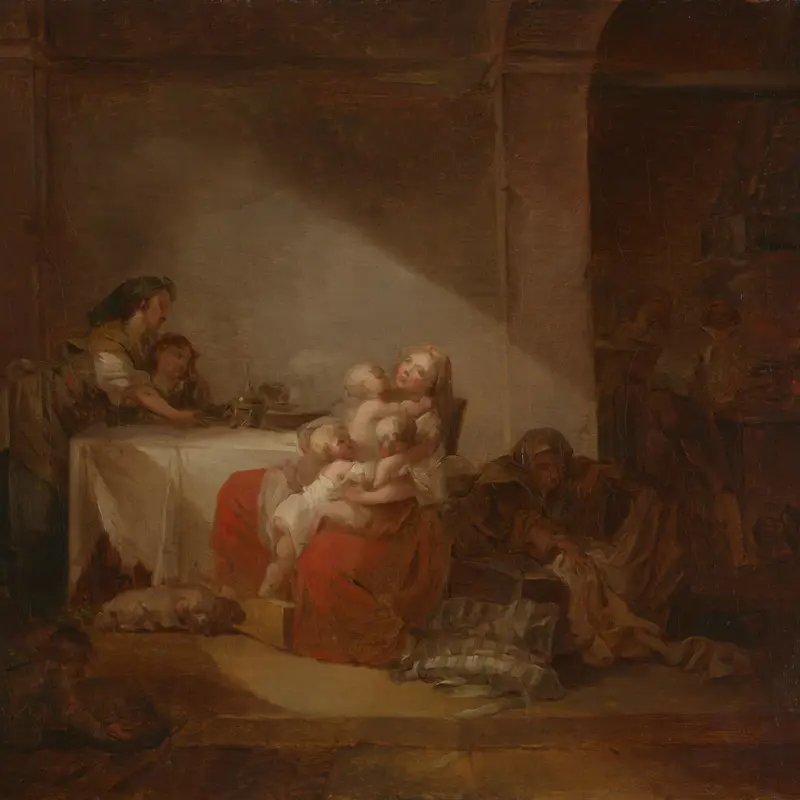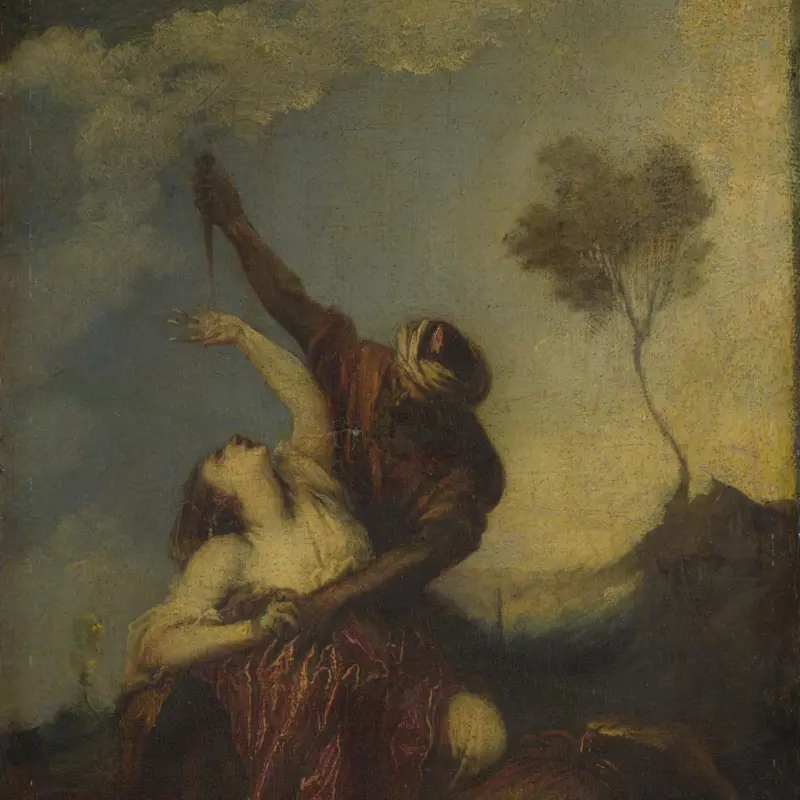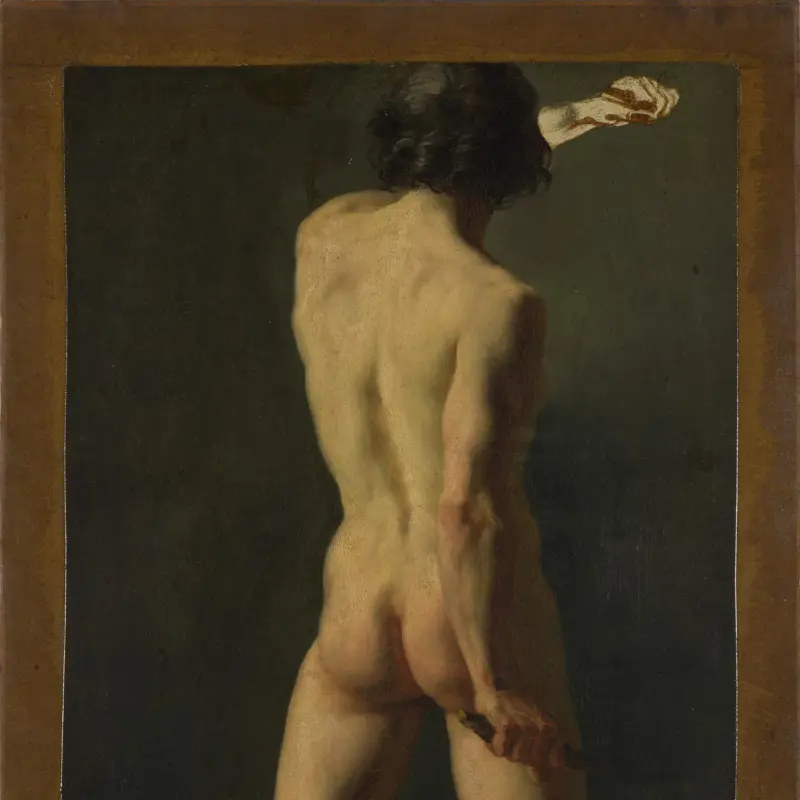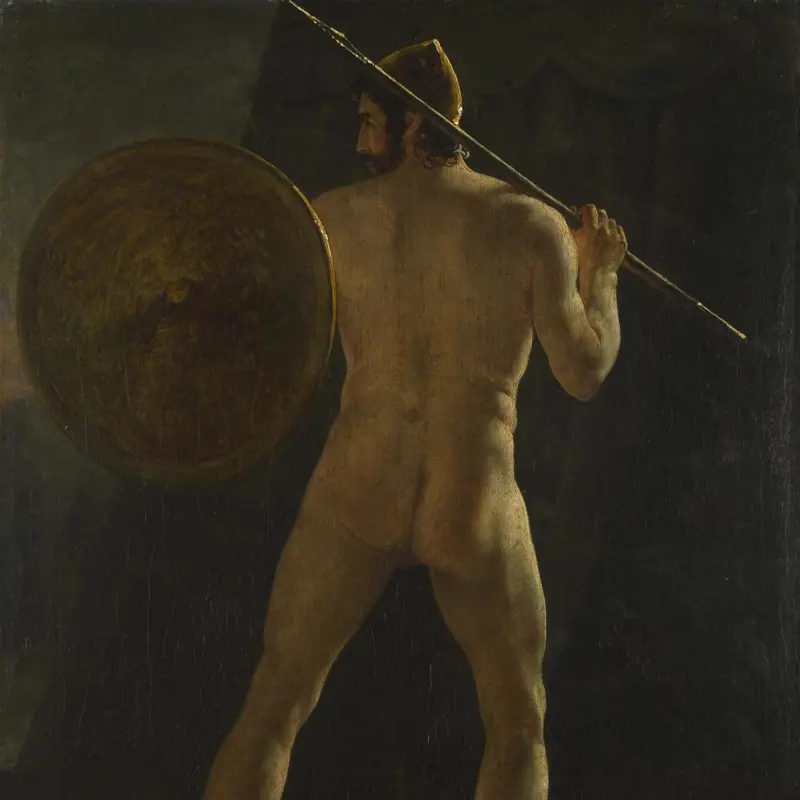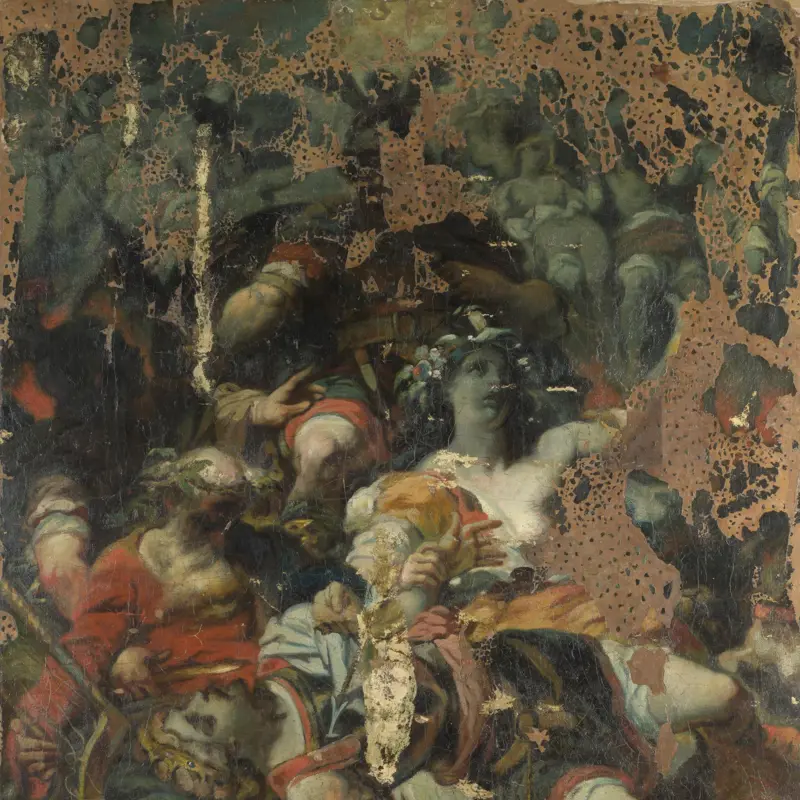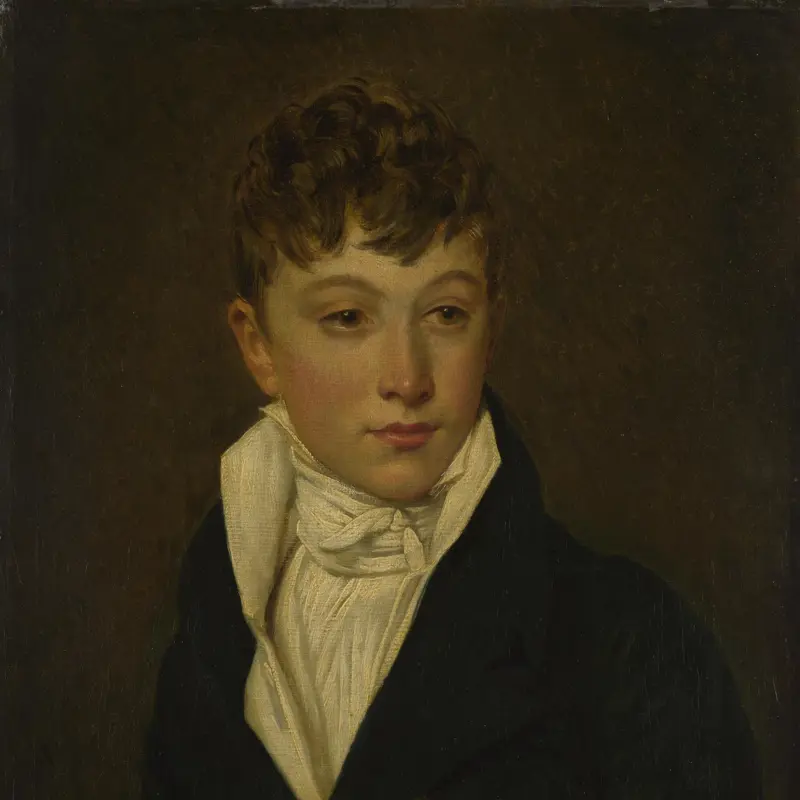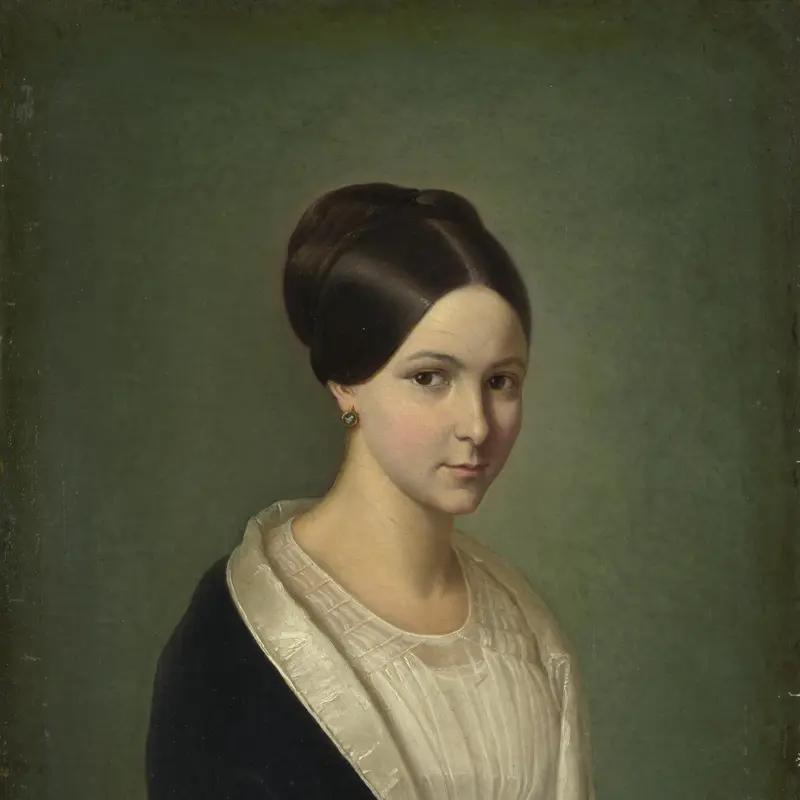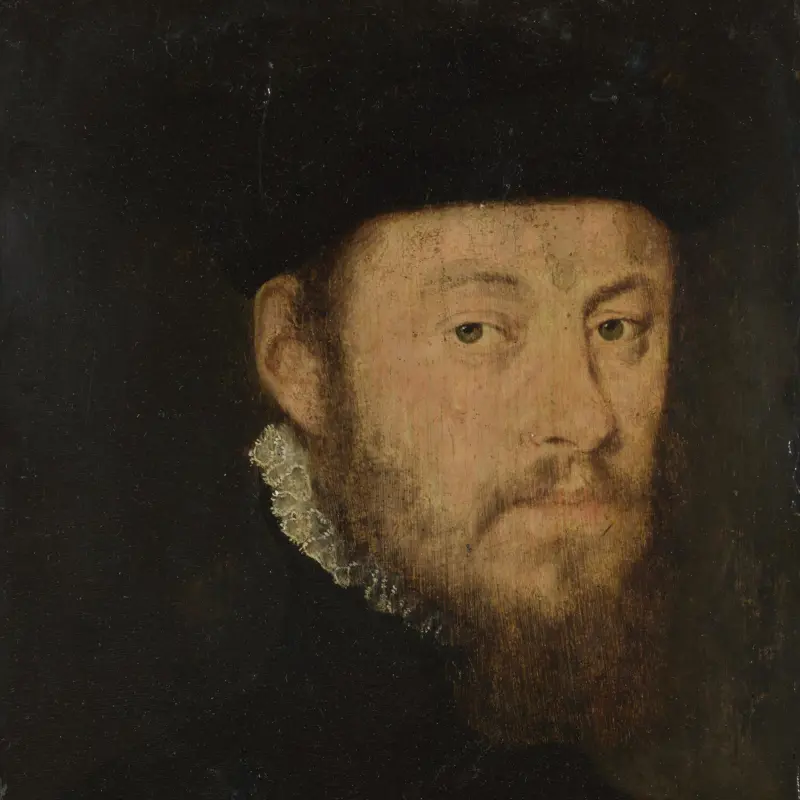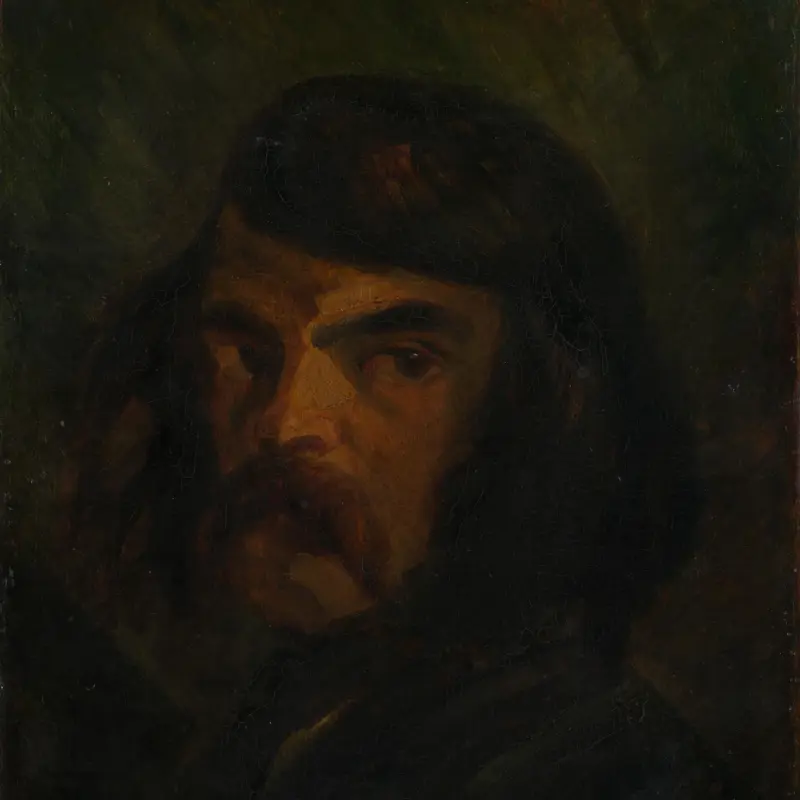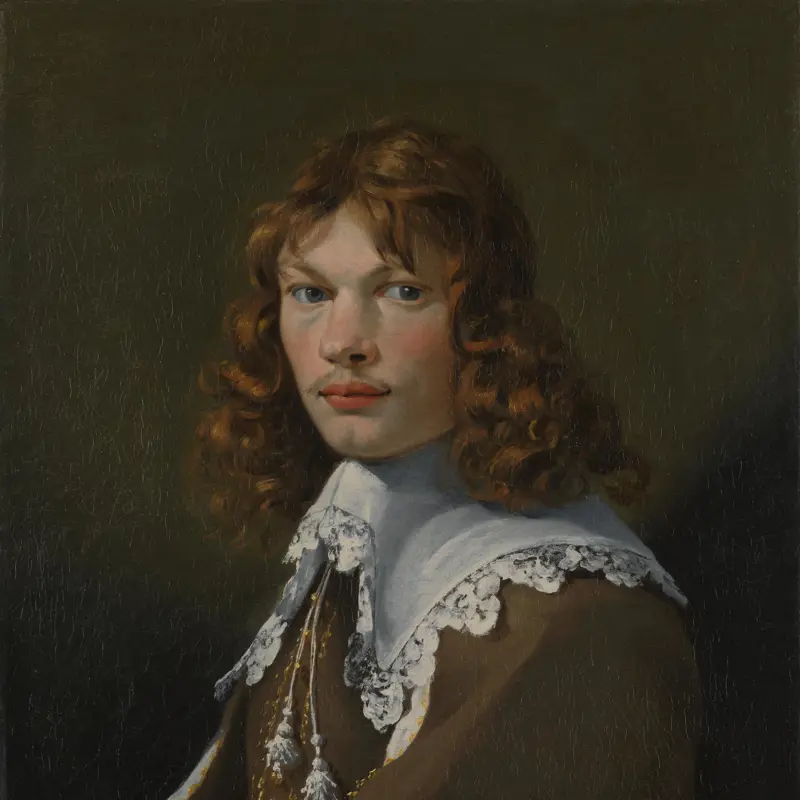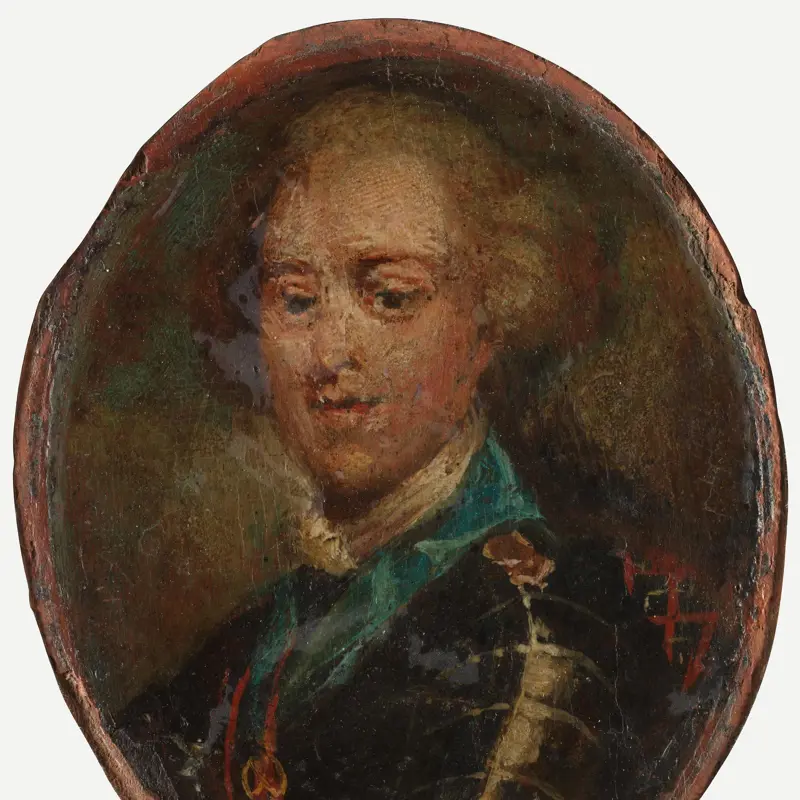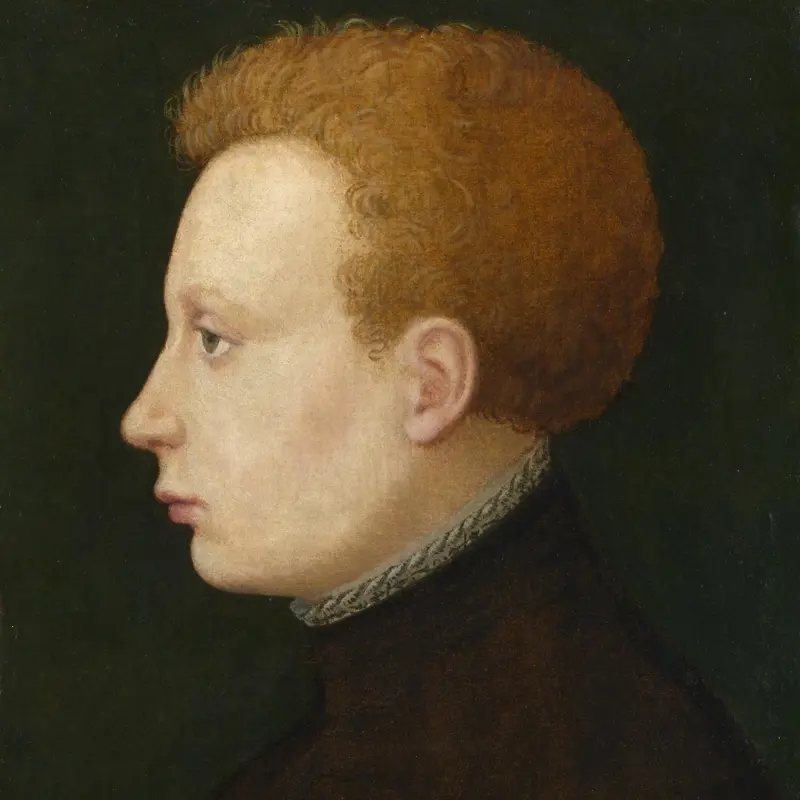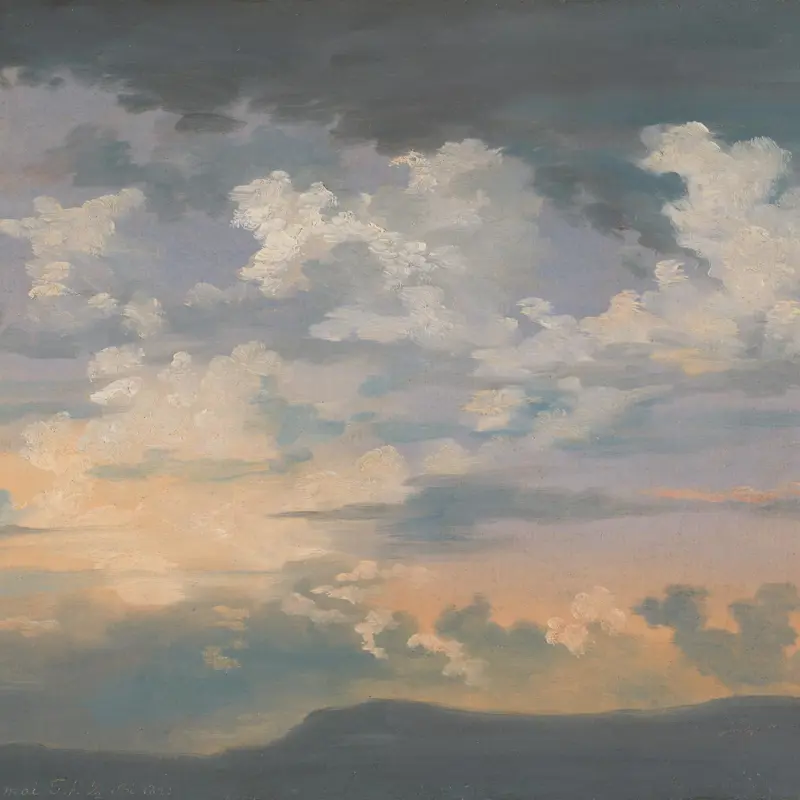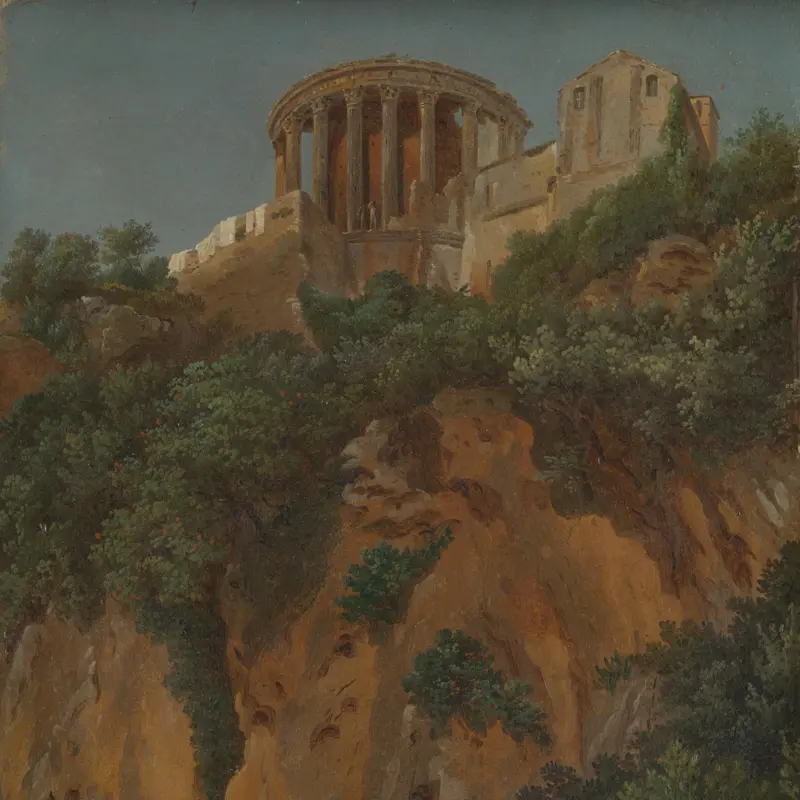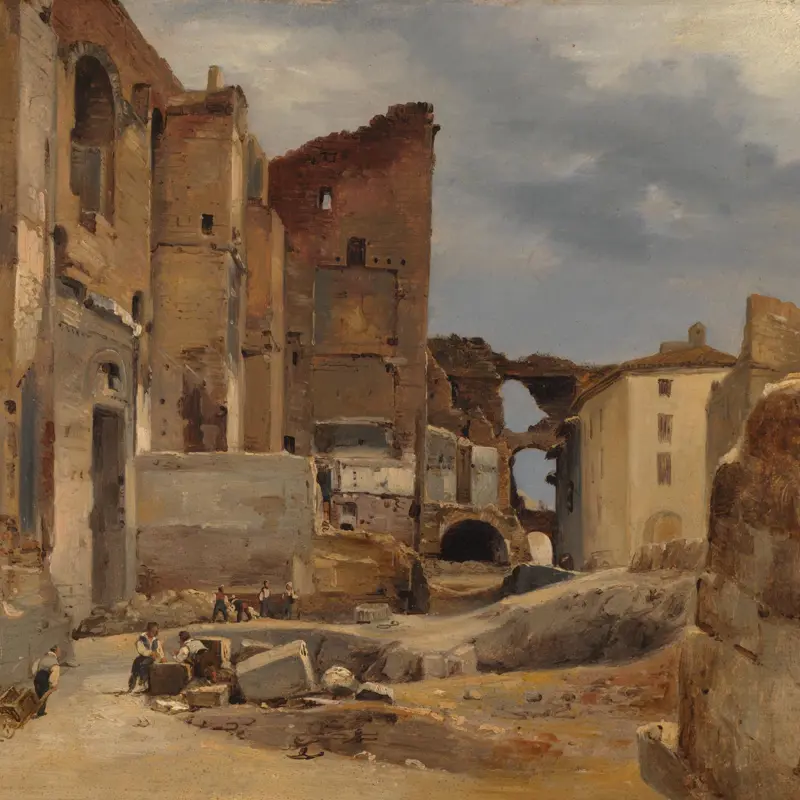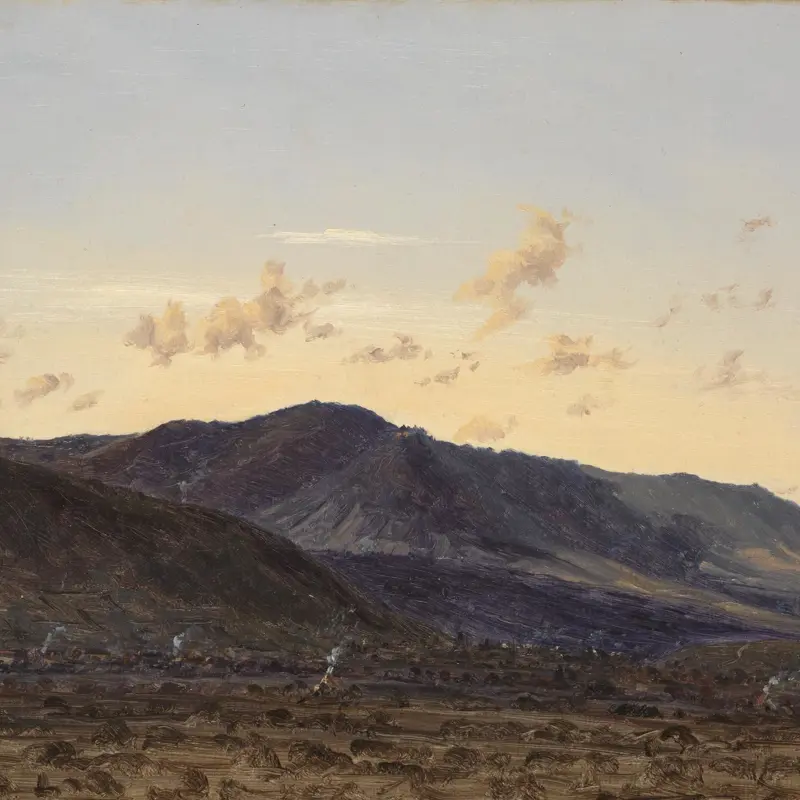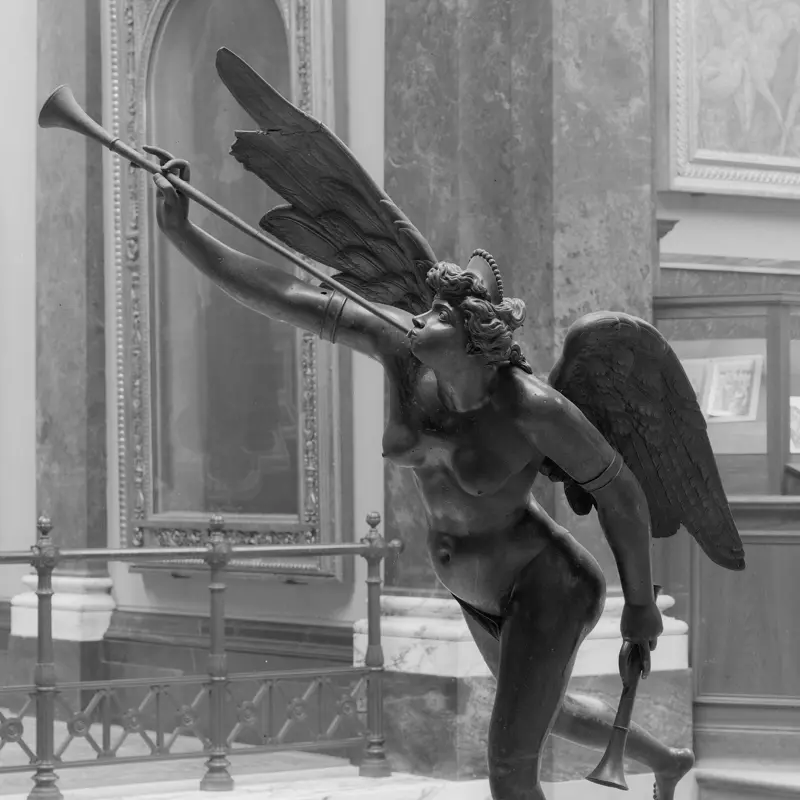French
Works by French
(Showing 6 of 18 works)
This striking oil portrait of a nude Black woman wearing a turban is most likely French from the nineteenth century. We do not know who painted it, although it has been attributed to Delacroix, Fromentin and to Marie-Guillemine Benoist, a student of David. The painting does share some similaritie...
On display elsewhere
Scenes of mothers and children were fashionable in eighteenth-century France, much encouraged by the writings of Jean-Jacques Rousseau, who advocated a ‘natural’ approach to child-rearing.A young mother is sitting in a beam of light at a table with three of her infants wriggling on her lap. An ol...
Not on display
The violent scene in this small Orientalist painting is an example of an imagined view of the Middle East. It depicts a white woman being attacked by a Middle-Eastern man who wears a turban. The dagger in his raised right hand points down directly towards her as he clasps her waist with his left...
Not on display
This back view of a standing male nude is an académie, which is a study, usually a chalk drawing or an oil painting, made from a live male model. These life studies formed part of the classical training of (male) artists from the eighteenth to the mid-nineteenth century, particularly in France. T...
Not on display
This back view of a standing male nude is an académie, which is a study, usually a chalk drawing or an oil painting, made from a live male model in the studio. It is one of two académies in the National Gallery’s collection.Such life studies formed part of the classical training of (male) artist...
Not on display
It has been suggested that this picture shows Attila driving Beauty, Art and Pleasure before him. Attila, who is often known as Attila the Hun, was ruler of the Huns, a nomadic people who lived in Central Asia, the Caucasus and Eastern Europe between the fourth and sixth centuries AD.The painting...
Not on display
This lively portrait was once wrongly attributed to Jacques-Louis David, but it may be by his assistant Georges Rouget or by one of David’s followers, Baron Gros. The boy’s clothing dates the portrait to around the first 15 years of the nineteenth century. However, his hairstyle allows us to date...
Not on display
This modest portrait with a highly finished surface was formerly thought to be by Ingres, but there is no justification for this attribution. Although the sitter and the artist have not yet been identified, both the hair and the clothes enable us to date the portrait to the mid-nineteenth century...
Not on display
This small picture could be the ruined remains of a competently painted portrait – it’s in poor condition, but the near eye has a complex catchlight consisting of at least three brushstrokes. The surface is badly rubbed, much repainted and obscured by dirt and discoloured varnishes. Thin brown ov...
Not on display
This small portrait was attributed to the French Romantic painter Eugène Delacroix (1798–1863) when it was presented to the Tate Gallery by the British artist Walter Sickert in 1922. However, this attribution is now rejected on stylistic grounds. The sitter is traditionally identified as the Fren...
Not on display
This picture raises all the questions usually prompted by an unidentified sitter: who is this person, where is he, how old is he? The dark background gives little information. He’s young, and his clothes suggest he’s well off, but there are no further clues to his identity.When this work entered...
Not on display
Prince Charles Edward Stuart, popularly known as ‘Bonnie Prince Charlie’, was the son of James Francis Edward Stuart and the grandson of the exiled King James II of England and Ireland and VII of Scotland (known as the ‘Old Pretender’). After James’s exile, the Jacobite cause aimed to return the...
Not on display
A young man with fair hair and blue eyes is shown from the side, with nothing to indicate his identity or social status. The picture is painted on a paper support, which may originally have been laid down on a panel; it is now mounted on canvas.Profile portraits like this had largely gone out of...
Not on display
The glowing sky is set between dark hills and threatening storm clouds, the strip of dense grey clouds at the top echoing the blue silhouette of land at the bottom. Distinctive jigsaw-shaped clouds are depicted in layers white hovering over grey, blue sky beyond fading to rose and peach at the ho...
Probably French
A life-size female nude with outspread wings alights upon a cloud, which is blown from a mask’s mouth. The mask is of Boreas, the Greek god of the north wind and of winter. In her outstretched right arm, she holds a long trumpet to her lips. In her left hand, she holds a shorter trumpet.This bron...
Not on display
You've viewed 6 of 18 works

